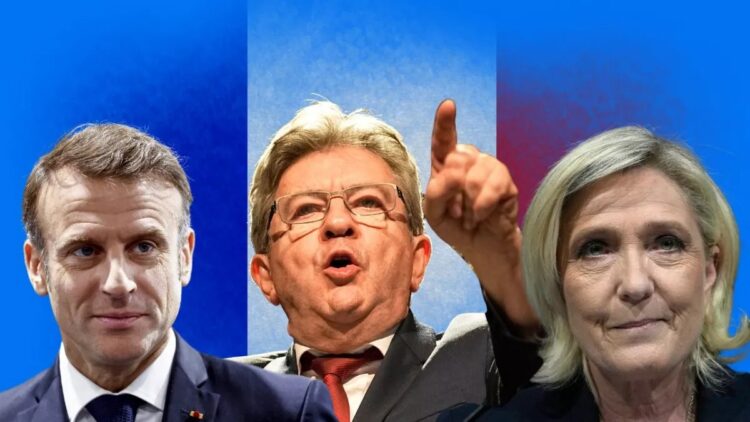A coalition of the French left won the most seats in high-stakes legislative elections on Sunday, overcoming a far-right surge but failing to secure a majority. The outcome has left France, a pillar of the European Union and the host country for the upcoming Olympics, facing the unprecedented prospect of a hung parliament and potential political paralysis.
This political turmoil could unsettle markets and the French economy, the EU’s second-largest, and have far-reaching implications for the war in Ukraine, global diplomacy, and Europe’s economic stability.
President Emmanuel Macron called the election on June 9 after the far right surged in French voting for the European Parliament, aiming for “clarification.” However, the gamble appears to have backfired. According to official results released early Monday, none of the three main blocs achieved the 289 seats needed to control the 577-seat National Assembly, the more powerful of France’s two legislative chambers.
The results showed just over 180 seats for the New Popular Front leftist coalition, which placed first, ahead of Macron’s centrist alliance with more than 160 seats. Marine Le Pen’s far-right National Rally and its allies were restricted to third place, although their more than 140 seats were significantly ahead of their previous best showing of 89 seats in 2022.
A hung parliament is uncharted territory for modern France.
“Our country is facing an unprecedented political situation and is preparing to welcome the world in a few weeks,” said Prime Minister Gabriel Attal, who plans to offer his resignation later in the day. With the Paris Olympics looming, Attal stated he was ready to stay at his post “as long as duty demands.” Macron has three years remaining on his presidential term.
Attal expressed clear disapproval of Macron’s decision to call the election, saying, “I didn’t choose this dissolution” of the outgoing National Assembly, where the president’s centrist alliance was previously the largest group, albeit without an absolute majority. Despite this, it managed to govern for two years by pulling in lawmakers from other camps to fend off efforts to bring it down.
The new legislature seems devoid of such stability. When Macron travels to Washington for a NATO summit this week, he will leave behind a country with no clear idea of who might be its next prime minister, facing the prospect of sharing power with a politician deeply opposed to his policies.
Despite the uncertainty, many celebrated. In Paris’ Stalingrad square, left-wing supporters cheered and applauded as projections showed their alliance ahead. Similar scenes of joy were seen in Republique plaza in eastern Paris, with spontaneous hugs and several minutes of nonstop applause following the projections.
Marielle Castry, a medical secretary, described the elation on the Metro in Paris when the results were first announced. “Everybody had their smartphones and were waiting for the results, and then everybody was overjoyed,” said the 55-year-old. “I had been stressed out since June 9 and the European elections. … And now, I feel good. Relieved.”
The election had already redrawn France’s political map even before votes were cast, galvanizing left-wing parties to set aside differences and form a new alliance. This coalition pledges to roll back many of Macron’s key reforms, embark on an extensive public spending program, and adopt a tougher stance against Israel due to the war with Hamas.
Macron described the left’s coalition as “extreme,” warning that its economic program, which includes significant public spending financed partly by tax hikes for high earners and wealth, could be ruinous for France, already criticized by EU watchdogs for its debt.
Nevertheless, the New Popular Front’s leaders immediately pressured Macron to allow the alliance the first chance to form a government and propose a prime minister. Jean-Luc Mélenchon, one of the coalition’s prominent leaders, asserted that the alliance “is ready to govern.”

















Comments